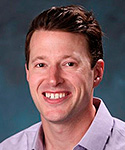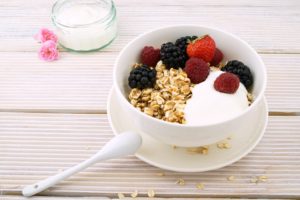December 19th, 2019
Yogurt – The Cure to Resident Burnout
Daniel Orlovich, MD, PharmD
What is the latest answer to resident burnout? It may surprise you.
Recent research from a large Midwest academic center suggests that not one but two dollops of yogurt may help stymie resident burnout. “When we first started to look at the reasons why so many residents were burned out, we couldn’t understand it,” stated the associate program director, “so we started a dig a little bit.” This digging, of course, did not involve actually asking those most affected by resident burnout — residents themselves.
So, to address that gap, here are some thoughts from actual residents:
- One intern referenced the financial strain felt by some. “I mean, average debt has gone up 270% from 1986 to 2018.” (Acad Med 2011; 86:840 and AAMC.org student debt)
- Another brought up the pace of the current healthcare system. “In 1972, the average length of stay was about 14 days — in 2009, it was 4.8 days (JAMA 1990; 264:1984). And residents in 1972 and in 2009 took care of the same amount of patients, too” (J Health Soc Behav 2012; 53:344).
- Another senior, while clicking on the computer, stated plainly, “the average ER physician clicks more than 4000 times per day and spends 44% of his or her day doing data entry (Am J Emerg Med 2013; 31:1591). And another study showed that IM residents spend as much as five times the amount of time documenting care as providing direct patient care” (Ann Intern Med 2017; 166:579).
- A current PGY3 thinks the solution is probably more nuanced: “Where is the right balance between educational versus service requirements? How about the right amount of supervision versus autonomy? These aren’t such a black and white issues, I suppose. I’m not saying residency is harder than it used to be — it is just different, that’s all.”
None of these facts were considered for the study.
“Residents now have the 80-hour cap. That means they work less than residents did before. So, there shouldn’t be any burnout. Burnout is all about hours worked,” stated the associate program director, noting how all professionals work hard early in training.
Yet, compared with other college graduates, residents are 1.6x more likely to be burned out, and 2x more likely to feel depersonalized, and they score lower on mental, physical, and emotional markers for quality of life (Acad Med 2014; 89:443).
Without seeking to understand or pinpoint the root cause of the burnout, and after residents fell asleep during the lecture on sleep hygiene, a one-size-fits-all approach was proposed — yogurt.
The program started to incorporate a mandatory dollop of yogurt during wellness lectures. This allowed the program to check off the box for “wellness” activities. Serendipity, the bedrock of all discoveries, occurred: as a medical student entered into this wellness lecture hoping to eat the free food, he ended up receiving not one but two dollops of yogurt.
“And when I saw the medical student’s face when he received two dollops of yogurt, I knew we were on to something,” said the associate program director. “Without any resident input at all, we then started a ‘two-dollop’ lecture. This was followed by a mandatory yogurt training module. Then, we worked with IT to create a checkbox to be clicked in the EMR to show that training was complete.”
Since those changes have been made, the following lectures were Band-Aids. Not in the figurative sense — actual Band-Aids were given out. Of course.
Author’s note:
This is satire. Of course, residency has become more humane. To have the opportunity to serve as a physician is an incredible privilege and special honor. Of course, it takes many hours to learn how to be an excellent physician. However, it doesn’t have to be any harder.
The question isn’t whether wellness lectures work. The issue is how they are done. Presenters sometimes miss the mark when they hand down mandated solutions, refuse to seek resident input, and fail to show an interest in understanding and acknowledging the current training environment. When done right, though, they can confer admirable and positive results. That means seeking out resident-led initiatives, being flexible in when they are performed, and addressing concerns that speak to residents.





I’m glad this is marked as satire, to help those media which can’t tell the difference whilst republishing it..
It’s also bribery: do you have a checkbox for bribery?
Maybe only in season.
Stephen, I’m glad you recognize we live in interesting times 🙂